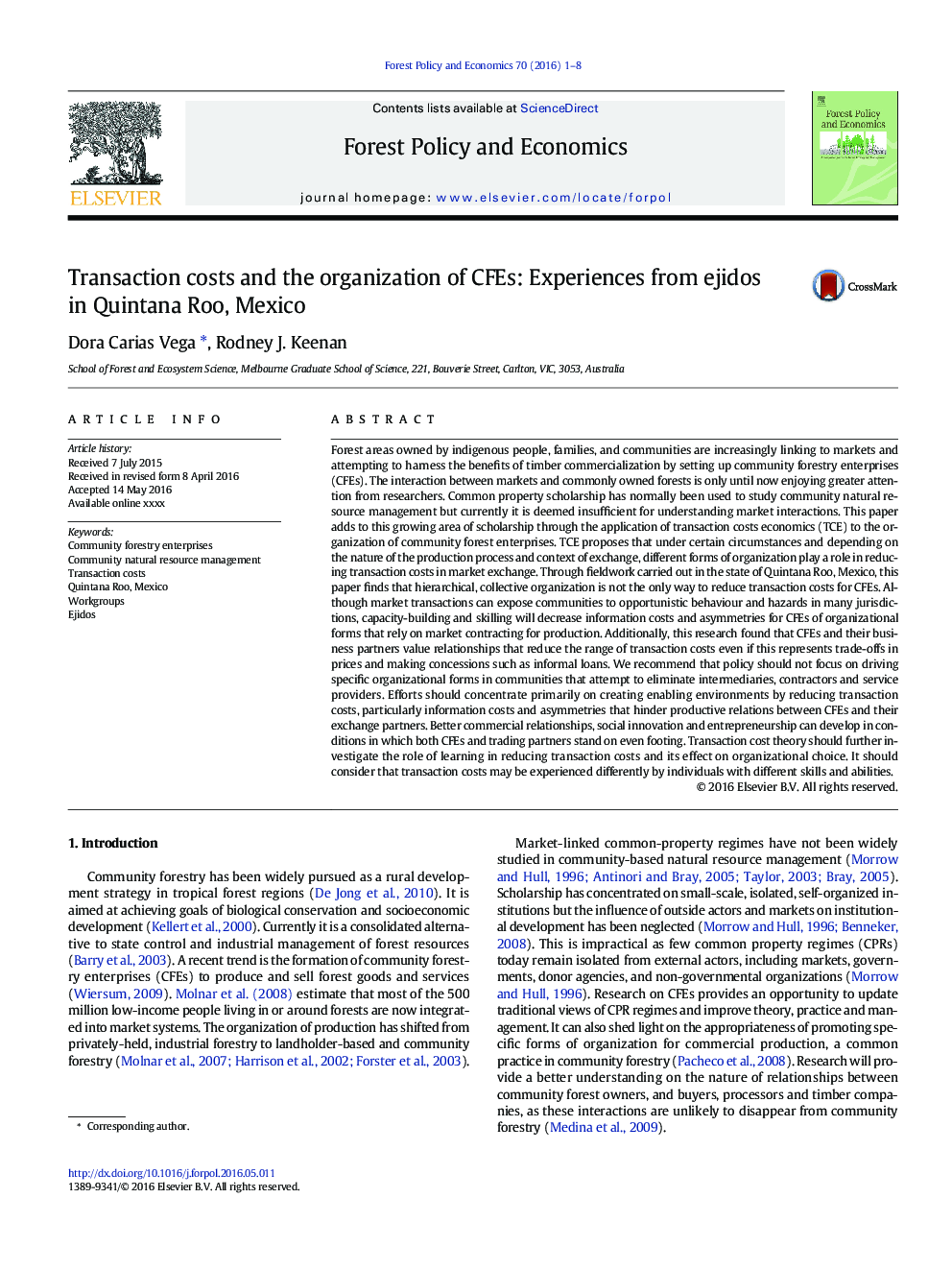| کد مقاله | کد نشریه | سال انتشار | مقاله انگلیسی | نسخه تمام متن |
|---|---|---|---|---|
| 6544864 | 159735 | 2016 | 8 صفحه PDF | دانلود رایگان |
عنوان انگلیسی مقاله ISI
Transaction costs and the organization of CFEs: Experiences from ejidos in Quintana Roo, Mexico
دانلود مقاله + سفارش ترجمه
دانلود مقاله ISI انگلیسی
رایگان برای ایرانیان
کلمات کلیدی
موضوعات مرتبط
علوم زیستی و بیوفناوری
علوم کشاورزی و بیولوژیک
جنگلداری
پیش نمایش صفحه اول مقاله

چکیده انگلیسی
Forest areas owned by indigenous people, families, and communities are increasingly linking to markets and attempting to harness the benefits of timber commercialization by setting up community forestry enterprises (CFEs). The interaction between markets and commonly owned forests is only until now enjoying greater attention from researchers. Common property scholarship has normally been used to study community natural resource management but currently it is deemed insufficient for understanding market interactions. This paper adds to this growing area of scholarship through the application of transaction costs economics (TCE) to the organization of community forest enterprises. TCE proposes that under certain circumstances and depending on the nature of the production process and context of exchange, different forms of organization play a role in reducing transaction costs in market exchange. Through fieldwork carried out in the state of Quintana Roo, Mexico, this paper finds that hierarchical, collective organization is not the only way to reduce transaction costs for CFEs. Although market transactions can expose communities to opportunistic behaviour and hazards in many jurisdictions, capacity-building and skilling will decrease information costs and asymmetries for CFEs of organizational forms that rely on market contracting for production. Additionally, this research found that CFEs and their business partners value relationships that reduce the range of transaction costs even if this represents trade-offs in prices and making concessions such as informal loans. We recommend that policy should not focus on driving specific organizational forms in communities that attempt to eliminate intermediaries, contractors and service providers. Efforts should concentrate primarily on creating enabling environments by reducing transaction costs, particularly information costs and asymmetries that hinder productive relations between CFEs and their exchange partners. Better commercial relationships, social innovation and entrepreneurship can develop in conditions in which both CFEs and trading partners stand on even footing. Transaction cost theory should further investigate the role of learning in reducing transaction costs and its effect on organizational choice. It should consider that transaction costs may be experienced differently by individuals with different skills and abilities.
ناشر
Database: Elsevier - ScienceDirect (ساینس دایرکت)
Journal: Forest Policy and Economics - Volume 70, September 2016, Pages 1-8
Journal: Forest Policy and Economics - Volume 70, September 2016, Pages 1-8
نویسندگان
Dora Carias Vega, Rodney J. Keenan,